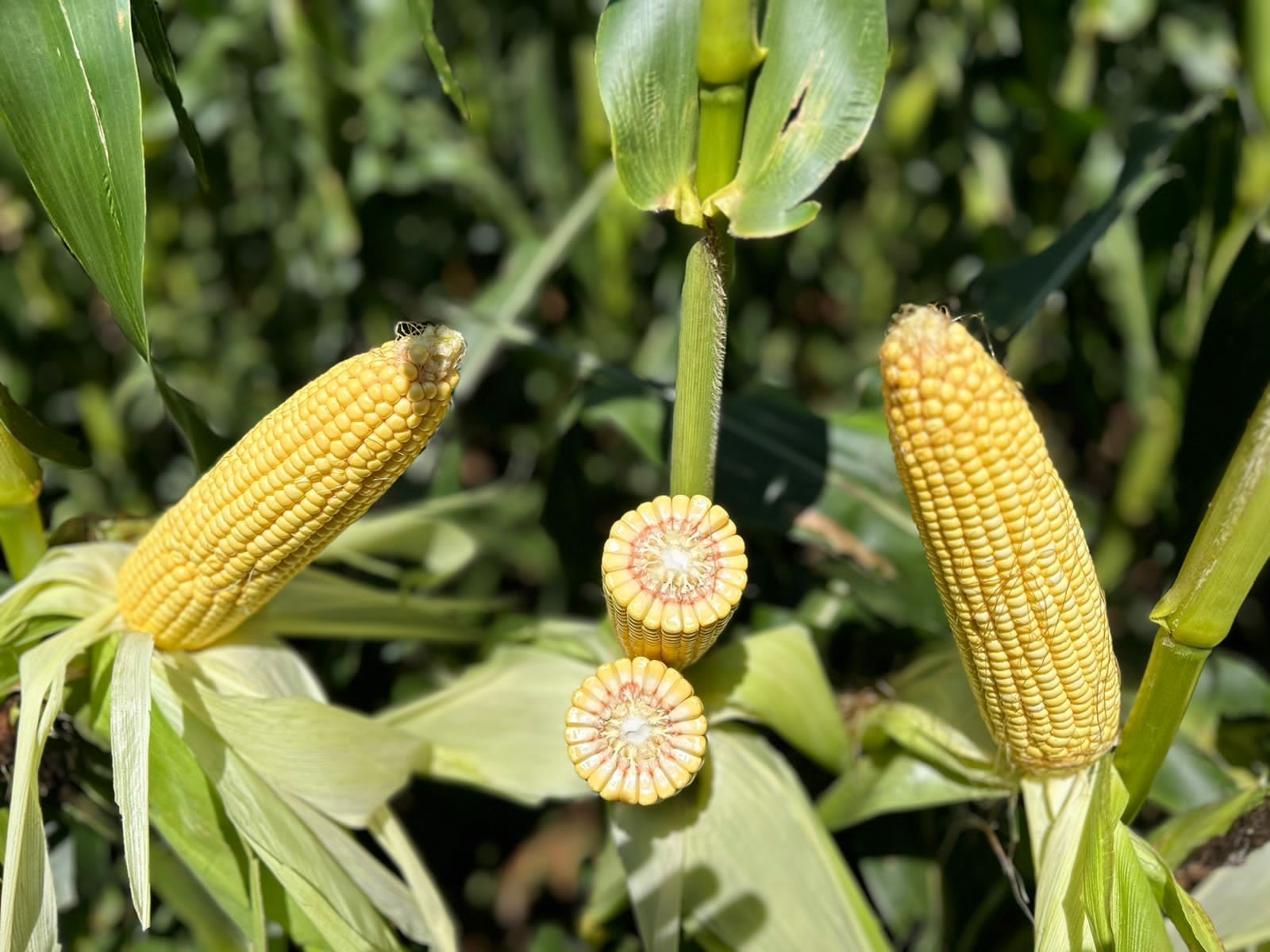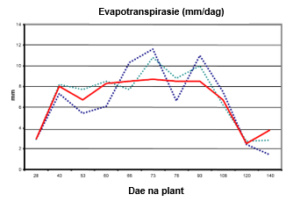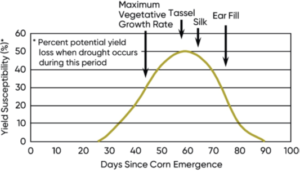This article deals with important points regarding the water consumption of maize during the plant’s development stages. This is an important aspect of irrigated and dryland hybrids that is sometimes not taken into account.
Crop water consumption, also known as evapotranspiration or ET, consists of two components: soil evaporation (E); and crop transpiration (T). Maize is most sensitive to water deficits from flowering through the grain filling stage. These aspects are briefly explained.
Evapotranspiration
Evaporation: Early in the growing season, water losses from the soil mainly occur by evaporation from the soil surface. As the crop grows and more leaf area forms shade over the soil, evaporation decreases as transpiration increases.
Transpiration: During the process of transpiration, plants absorb water from the soil and transport it to the leaves. Small openings in the leaves (stomata) allow water vapor to move from the plant to the atmosphere, which cools the plant. The rate of transpiration depends on climatic conditions, mainly air temperature, wind, humidity, and solar radiation. The rate of transpiration increases with higher air temperatures, more solar radiation, and wind speed. High humidity levels reduce transpiration by reducing the difference in water potential between the leaf airspace and the surrounding air.
Evapotranspiration during the growing season: Evaporation often accounts for 20 to 30%, and transpiration 70 to 80%, of total ET over the course of a growing season (Kranz et al, 2008). Total ET over the course of the growing season depends on local climatic conditions and the relative maturity of the plant. Taller, relative mature hybrids will require more water throughout the growing season (Figure 1).
- Figure 1: Daily average maize water consumption for different growing season hybrids.
- Figure 2: Susceptibility to water stress in maize (Sudar et al, 1981).
Under drought stress conditions, water withdrawal from deeper layers may increase as water near the top of the soil profile becomes depleted (Irmak and Rudnick, 2014). The impact of water stress on maize grain yields varies depending on the plant’s growth stage (Figure 2).
Figure 2: Susceptibility to water stress in maize (Sudar et al, 1981).
Maize is relatively insensitive to water deficits during the early vegetative growth stages, as the demand for water is then relatively low. Plants can adapt to water stress throughout most of the vegetative period to reduce its impact on grain yield. However, maize is much more sensitive to water stress from flowering through grain filling.
P1225PW in a nutshell:
This is a new technology addition from PowerCore™ to the P1225 platform. At this stage it is an excellent irrigation platform with excellent and stable yield potential for the Eastern and Western production regions. This is an exciting short growing season, yellow irrigation platform that can be used with great care with the P1513 and P1975 platforms in a dryland package.
P1225 and P1225PW are high-potential hybrids with excellent adaptability and stability, which can handle cooler conditions better than the P1197 platform. It comes up very strong and produces a very strong seedling. Furthermore, the platform also has good agronomic properties for an irrigation hybrid. It can be planted early and is also suitable for late plantings.
The platform is single-headed and can compensate well under optimal conditions. It is a medium open frame plant with a longer leaf shape and has excellent grain with a high bushel mass.
Another good feature is that it performs well in all soil types and row widths. It also has an evergreen property. This platform has good leaves for an irrigated hybrid, but a spraying program must still be followed. The platform is adapted to any plant population, but not too high. Irrigate preferably between 65 000 and 75 000 plants/ha, depending on row width.
P1225 and P1225PW looks like a platform that has very good water consumption and water consumption efficiency. It is important that modern maize hybrids have the ability to produce good grain for every mm of water they consume, especially given the impact of high electricity and water prices together with changing climate conditions.
For more information, contact Pioneer at info.rsa@pioneer.com or visit www.pioneer.com/za











